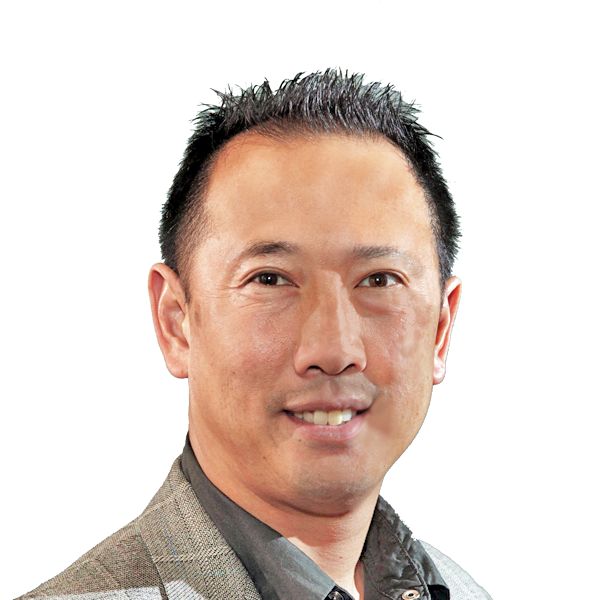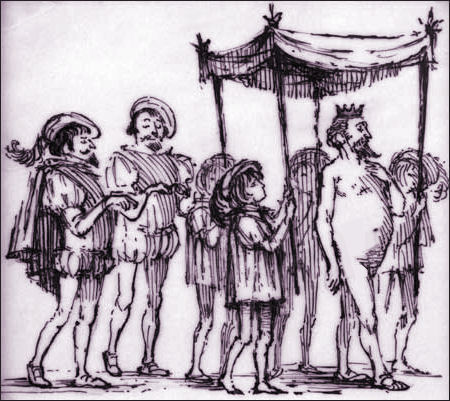Mobile UC Without Security? Like the Emperor Without Clothes... In Front of a Hungry Lion.

August 22, 2016

These days, everyone is mobile thanks to the proliferation of the cell phone... and more specifically the smartphone. Yes, smartphones account for over 50% of the total mobile phone market in the US and it's the fastest growing segment of the mobile market. Credit Apple and Google and their respective mobile OS platforms for this explosive growth. Of course they just provided the viable platform. The real drivers are the apps and capabilities that these platforms allow real users to get things done (having fun is a "thing" to get done as well!).
Indeed, besides making and receiving a call or a text from a friend, smartphones initially played the role of mobile fun machines for most people - until recently. With the decline of Blackberry in the corporate world, businesses and app developers have turned to the “Bring Your Own Device” (BYOD) model for extending the business world to mobility and empowering workers to be mobile. Workers are now able to break the physical walls of their corporate offices and access HR resources, CRM databases and corporate websites. Cloud services have become the de facto standard by which these corporate services are now being delivered. Cloud deployed services are ideal for a mobile, highly distributed workforce.
Some hosted VoIP providers deliver mobile apps to support mobile communications integrated into their hosted VPBX platforms. Some communications service providers also support some form of unified communications mobile apps. These are great advancements for cloud communications and for the customers that are taking advantage of these services. Unified communications is a very good example of a corporate service that dramatically benefits from being delivered from the cloud instead of capital intensive on-premises equipment that generally is obsolete the day it gets installed.
Unfortunately, there has been a huge casualty that some service providers have created in their race and haste to deliver a mobile unified communications application... SECURITY! It may seem like a pretty common sense feature/requirement, but most (if not all) mobile communications apps (softphone and unified communications) do not implement any level of security beyond the weak user name and password login. These same service providers tout hardened data center security and encrypted secure transfers and protocols, but when it comes to end point device security or user level security, all someone has to do is look over your shoulder at an airport and record your login credentials and your identity is theirs; as are all your communications capabilities (making calls internationally) and content (voicemails, faxes, emails, etc...). And, since the mobile apps can be downloaded and installed on any device, the hacker/thief need only go to the app store and download the cloud service provider's very own app and begin using your credentials. They can virtually "become you" and rack up thousands of dollars in communications costs in a matter of minutes! Customers must think twice before allowing their employees to install these applications on their BOYD devices. Do they want to be liable for being hacked??
Fortunately, companies like PanTerra Networks have built enhanced security into their mobile unified communications applications from the start. It is an inherent feature of our Mobile UCC application. Using multi-phase authentication technology, Mobile UCC validates each mobile device to a specific WorldSmart user. Even if a user's login credentials are compromised, the "would-be" hacker can't use them to login to the service on another unauthorized device! They are stopped dead in their tracks. And, the service monitors and alerts the PanTerra user when unauthorized accesses are attempted. Users of Mobile UCC can be confident and have true peace of mind that their communications and content are safe and secure.
In addition to multi-phase authentication, PanTerra also implements Multiple Active Device Manager (MADM), which allows users to actively monitor and remotely control access to all mobile devices (desktops too). This protects the user when their mobile device is lost or stolen. If such an event occurs, the user (or account admin) simply logs into another trusted device and remotely locks out the stolen or lost device, instantly blocking the hacker from gaining access to the service or content. With MADM and multi-phase authentication, PanTerra is the clear leader in delivering SECURE cloud-based mobile Unified Communications applications for enterprises.
.jpg?width=500&height=500&name=Are%20you%20Getting%20a%20Good%20Deal%20(1).jpg)
Comments